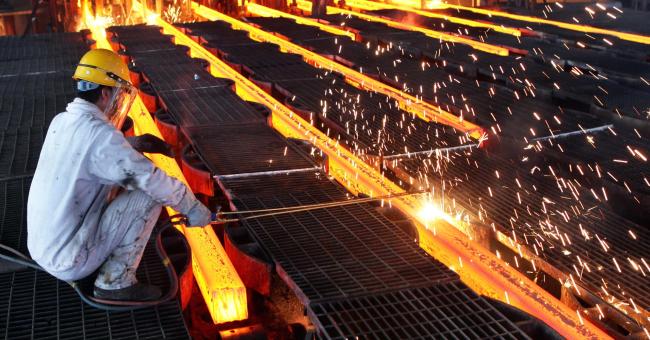Economy
Seoul to take tariff issue up to WTO
[THE INVESTOR] Minister of Trade, Industry and Energy Paik Un-gyu said on March 9 that Seoul will consider filing a complaint with the World Trade Organization, expressing regrets over US President Donald Trump’s recent activation of a 25 percent tariff on steel imports.
“If this action takes effect, it would inevitably deal a serious blow to South Korean steel exports to the US,” Paik said. “We will actively consider taking group action with other countries affected by the latest move.”
The measure may have significant impact, since South Korea shipped 3.6 million tons of steel products to the US as the third largest steel exporter, following Canada and Brazil, according to the US Department of Commerce.
 |
Despite these efforts, the government here is facing much flak for being “lax” towards the latest US decision on heavy tariffs, an issue that is likely to cause up to 7.23 trillion won ($6.76 billion) of losses over the next three years, according to Hyundai Research Institute.
The crux of the problem, according to observers, is the lack of Cheong Wa Dae action, as the presidential office is seemingly reluctant to collide with Washington amid ongoing denuclearization talks concerning North Korea.
The Trade Ministry was apparently the only government sector which addressed the issue directly.
Deputy Prime Minister and Finance Minister Kim Dong-yeon also said that he is “taking (the steel tariff issue) seriously” and pledged to “exert the best efforts” to talk the US out of the plan, but remained passive, leaving the Trade Ministry in control.
The stance disparity between ministries was attributable to the Moon Jae-in administration’s apparent move to separate the national security and trade issues, an effort to prevent tariff brawls from disturbing the ongoing denuclearization agenda. The delicate situation largely discouraged the nation’s finance headquarters from raising its voice on the tariff dispute, according to observers.
The sole player left in charge of the tariff issue was thus Trade Minister Kim Hyun-chong, vice ministerial policymaker in trade affairs, who has visited Washington DC twice over the past two weeks in an effort to reach out to US lawmakers, government counterparts and economic organizations.
Despite Kim‘s expertise as trade chief and personal network, concerns persisted that his efforts would be insufficient to counter Trump‘s trade blows, unless with strategic assistance.
In contrast to Seoul‘s two-way approach, other major steel exporters such as Japan, Australia and Canada earlier vowed joint efforts on summit-level, an effort which apparently spared Canada from the extra tariff measure.
“Outreach activities always exist, whether or not in times of crisis,” said Cheong In-kyo, vice president and professor of economics at Inha University.
“The fact that (the ministry) touts it as a countermeasure shows that the government has failed to properly set up a trade negotiating system.”
The Trade Ministry has since late last year tried to expand its trade negotiation headquarters and establish a new trade strategy team under it, but the plan is yet pending due to disputes on budget and government organization efficiency.
“Even if the new trade strategy team were to kick off, the problem is that there are few civil experts who are likely to join the operations,” said Ahn Duk-geun, professor at Seoul National University‘s Graduate School of International Studies.
“Also, (the given job) imposes a three-year restriction from taking another job in related fields, so competent experts are likely to shirk the position.”
By Bae Hyun-jung/The Korea Herald (tellme@heraldcorp.com)








